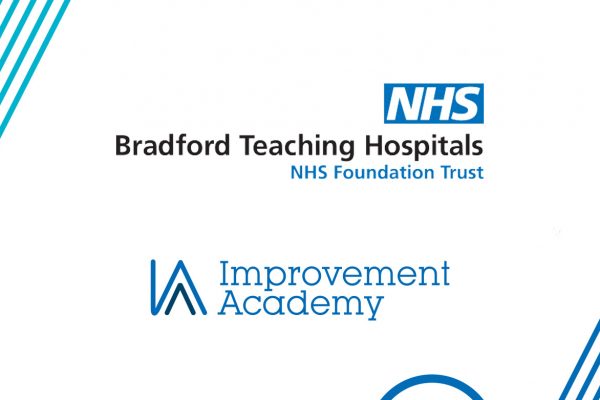In a nutshell: The Improvement Academy supported two trusts (Bradford Teaching Hospitals NHS Foundation Trust and Leeds Teaching Hospitals NHS Trust) involved in the Health Foundation funded ‘Tackling Acute Kidney Injury’ project along with two other trusts (Frimley Health NHS Foundation Trust and Ashford and St. Peter’s Hospitals NHS Foundation Trust). Aiming to reduce incidence and harm from acute kidney injury.
The Challenge
Acute Kidney Injury (AKI) is a major cause of harm. Research tells us that 1 in 5 emergency admissions have acute kidney injury, there are delays in recognising it in hospital patients in around 43% of cases, and all patients are at risk. If unrecognised, acute kidney injury will result in uraemia, acidosis, hyperkalaemia, chronic kidney disease (CKD) and ultimately death. It is known that around 20-30% of acute kidney injury cases are avoidable and is estimated to account for 12,000 unnecessary deaths a year in the UK.
What did we do?
The project was set up to test a potential solution to address these problems and to test whether a package of interventions that were developed and shown to be successful in the lead centre (Derby Teaching Hospitals) could be adopted and be effective in other hospitals. We wanted to improve the quality of care that patients receive when acute kidney injury happens. By doing so, we hoped to improve the number of patients who recovered from it.
The package of Interventions to be tested included acute kidney injury detection and alert (using the nationally approved algorithm), hospital wide education and an AKI care bundle. Their aim was to increase recognition, enhance awareness and understanding and drive improvements in basic elements of care. With longer term aims to impact on 30 day mortality, incidence of hospital AKI, incidence of AKI progression, length of stay, and proportion of AKI patients with renal recovery by discharge.
The Tackling AKI project ‘stepped wedge design’ – this meant that instead of introducing the AKI interventions in all hospitals at the same time, there was a staggered roll-out across the 4 Trusts. Outcomes were measured at regular time periods, with measurement taking place at each step in the wedge; each Trust supplied data in the control and intervention periods allowing each site to act as its own control.



